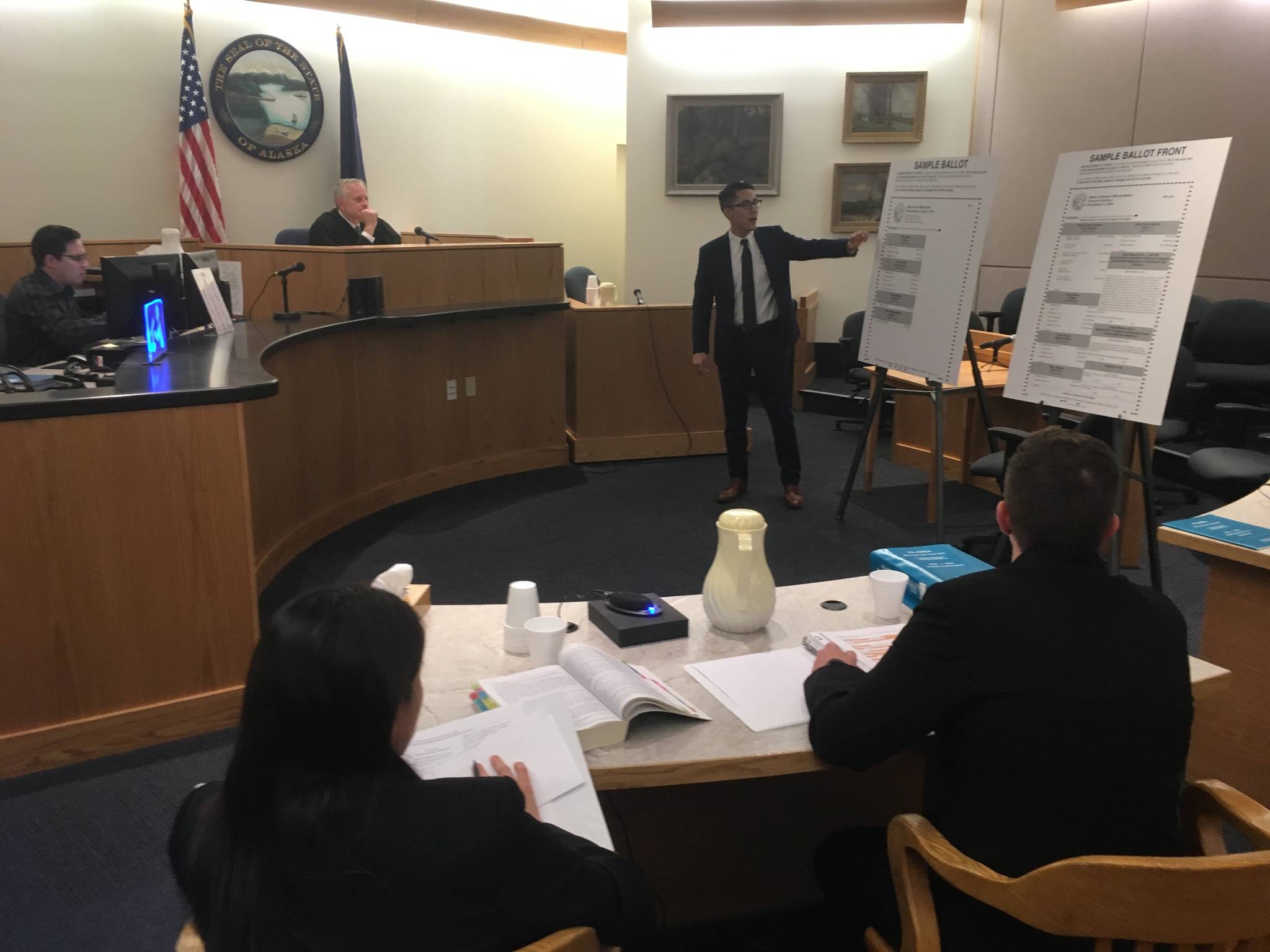The State of Alaska is appealing a decision that would allow independent political candidates to run in the primary election of the Alaska Democratic Party.
On Friday, the state said Juneau Superior Court Judge Philip Pallenberg made a mistake by concluding the state’s actions were a violation of the First Amendment, and that he made a second mistake by not considering how a winning independent’s name would appear on the general election ballot.
“We don’t agree with the superior court that the party membership requirement in state statute places an unconstitutional burden on political parties,” Attorney General Lindemuth said in a prepared statement. “This case presents significant constitutional questions that should be decided by the Alaska Supreme Court.”
The appeal pushes the case into the arms of the Alaska Supreme Court, and the state is asking for the court to take the case on an expedited basis.
That matters because the deadline for a candidate to file for next year’s party primary is June 1. If the Supreme Court affirms Pallenberg’s verdict after that date, the ruling wouldn’t be effective until the 2020 election.
An independent who runs in (and wins) the Democratic primary for office could have an advantage in the general election. By winning the Democratic primary, the independent would knock out any Democratic challenger, leaving the independent to face only the Republican and third-party candidates in the general election.
A positive verdict for the plaintiff would also have significant impact on the state’s election system. Many of the laws governing that system assume that a party election winner belongs to a particular party. Title 15 of Alaska law (dealing with elections) is rife with references to rights and privileges granted to recognized political parties. In Superior Court, assistant attorney general Margaret Paton-Walsh said a ruling in favor of the Democratic Party would be like a collapsing Jenga tower.
Jon Choate is representing the Alaska Democratic Party in the case. By text message, he said. “The decision to appeal is the state’s prerogative. I believe the law and facts favor the Alaska Democratic Party’s position. Political parties in Alaska have the right to allow independent candidates to compete for their nomination, just as they have the right to allow independent voters to help choose their nominees.”
The Alaska Democratic Party filed its lawsuit in February, oral arguments were held Sept. 21, and the decision was issued Oct. 17. The February filing followed a similar attempt by the Alaska Democratic Party in 2016. In that earlier lawsuit, the judge ruled that the party needed to change its own rules before asking the state to change its rules. The party duly changed its internal rules, and the February lawsuit filed.
According to an analysis conducted last year by the Alaska Judicial Council, Pallenberg’s decisions are rarely overturned on appeal. He has a 99 percent affirmation rate on criminal cases and a 77 percent affirmation rate for civil cases. (ADP v. State is a civil case.)
• Contact reporter James Brooks at james.k.brooks@juneauempire.com or call 523-2258.

